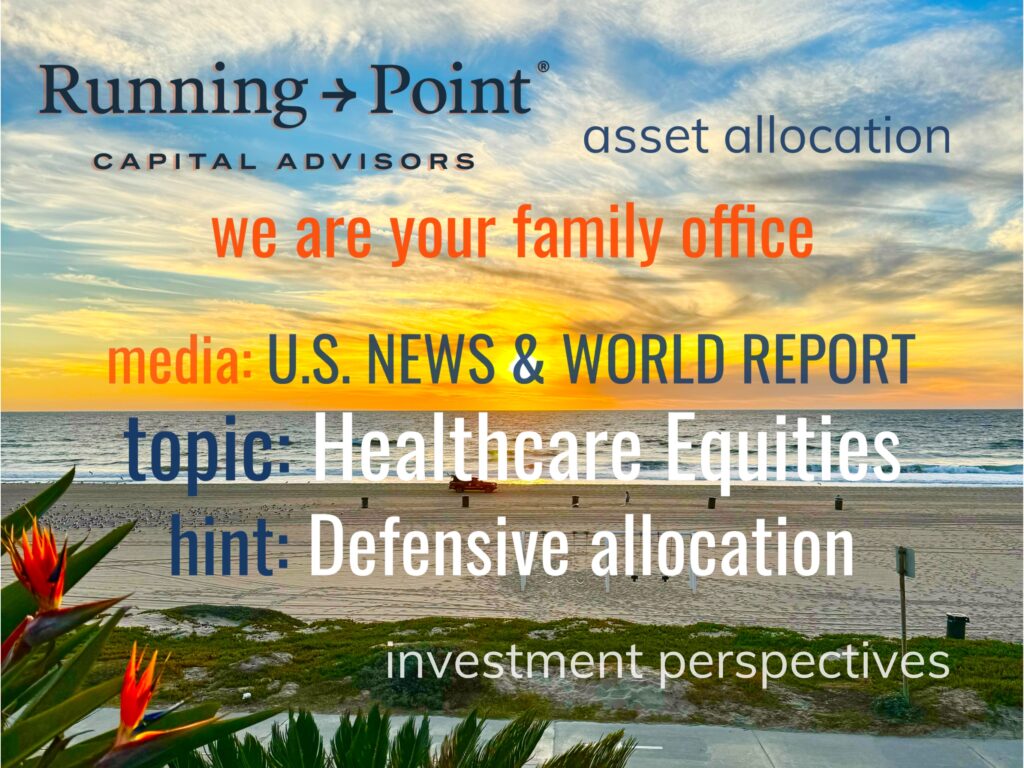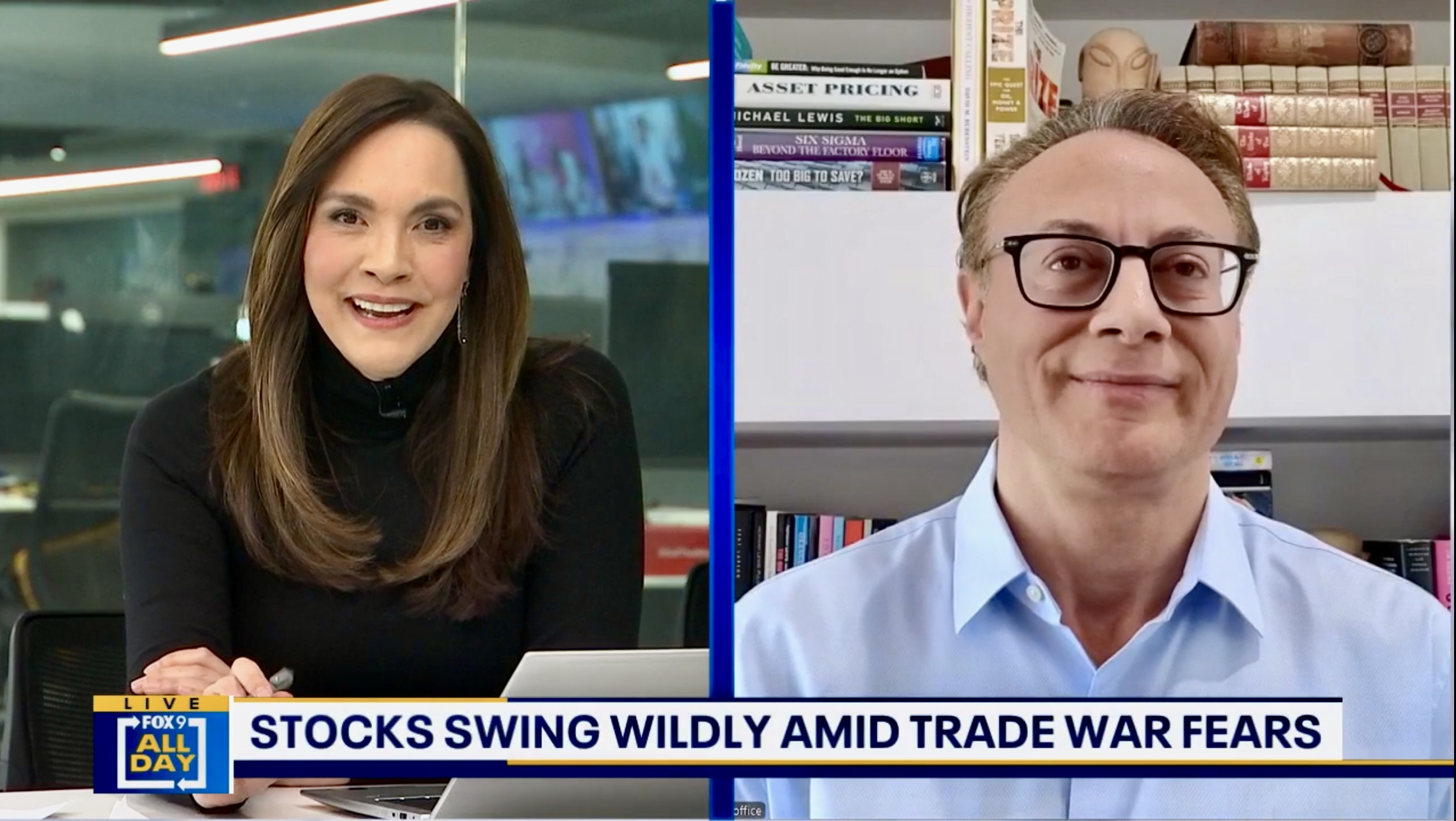Healthcare for diversification and defense
Running Point and its chief investment officer, Michael Ashley Schulman, CFA were quoted by U.S. News & World Report in an article — by reporter Brian O’Connell, “6 Best Health Care ETFs to Buy for 2024” — regarding when it makes sense to emphasize healthcare equities.
Expectations for 2024
Stocks may generally do well for the remainder of 2023, therefore, healthcare ETFs and stocks could continue to lag the broader market as they have all year, especially as people do last minute tax loss harvesting (selling investments that are at a loss to balance against realized gains). However, there is potential for their performance to play catch up to the broader market as we enter 2024 and what is expected to be a chaotic and challenging election year.
ETFs to consider
Some general healthcare ETFs to consider are VHT, XLV, and FHLC, as all are large, relatively liquid, and have expense ratios under 0.1%. On the other hand, lower interest rates or an economic rebound may play into some of healthcare’s more beaten-down sectors of equipment, biotech, and small-capitalization companies with ETFs like XHE, XBI, BBH, and PSCH.
Note, none of these are complete lists nor are they recommendations.
When selecting a sector ETF, try to examine its underlying holdings and ensure that it contains the stocks of companies you expect or desire.
Past performance
Over time, the information technology, healthcare, and consumer discretionary sectors tend to be the strongest performers. However, of those, only technology has beaten the S&P500 over the last 10 years. Over a longer period of 16 years, since the beginning of 2008, four out of eleven stock sectors — information technology, healthcare, consumer discretionary, and consumer staples — outperformed the S&P 500 stock market index. Energy, real estate, communication services, utilities, materials, and financials, while providing good industry diversification, have tended to underperform the main index over long time periods, while the performance of industrials has hovered a little below the S&P 500. Importantly, of course, past performance for any sector is not an assurance of future returns.
Quoted article excerpts are below:
“Health care ETFs and stocks are often considered defensive during market downturns, as people generally continue to require health care services regardless of economic conditions,” says Michael Ashley Schulman, chartered financial analyst and chief investment officer at Running Point Capital Advisors, a multifamily financial planning company in El Segundo, California. “In that scenario, investors may buy health care stocks as a protective strategy to mitigate risks during economic recessions or broader market declines, as health care demand is not highly cyclical.”
Investor interest can also be driven by specific opportunities “such as positive health care industry trends, breakthrough medical advancements, aging population demographics, pandemics, or regulatory changes that could potentially increase demand for health care products and services,” Schulman adds.

Cure sometimes, treat often, comfort always.
Hippocrates, Greek physician
Disclosure: The opinions expressed are those of Running Point Capital Advisors, LLC (Running Point) and are subject to change without notice. The opinions referenced are as of the date of publication, may be modified due to changes in the market or economic conditions, and may not necessarily come to pass. Past performance is not indicative of future results. Forward-looking statements cannot be guaranteed. Running Point is an investment adviser registered with the U.S. Securities and Exchange Commission. Registration does not imply a certain level of skill or training. More information about Running Point’s investment advisory services and fees can be found in its Form ADV Part 2, which is available upon request. RP-23-128


